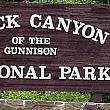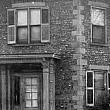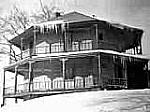Capt. John W. Gunnison, United States Army
Obituary Clipping[i]
The untimely and tragic fate of this gallant and able officer, while engaged in the arduous duties of the government, has caused a profound impression throughout the country.
Capt. Gunnison was placed by the War Department in April last, in command of the party charged with the survey and exploration of the Central Pacific Railroad route. He left St. Louis, after receiving his instructions from the government, early in June last with high hopes, and possessing the confidence of the country that a more faithful, energetic, and efficient officer could not have been selected for the important post assigned him. The appropriation of Congress providing for the survey was extremely limited, but the utmost power was given to Capt. Gunnison, by the Secretary of War, consistent with the act under which the survey was required to be made. It was not until May that Capt. Gunnison received a notification that he was required to assume the command of the expedition. He immediately set out for Washington to arrange the necessary matters for the difficult work before him; the organization of his party, the selection of his assistants, the purchase of commissary and material for the work. The Secretary of War, having the most unbounded confidence in the judgment and fidelity of Capt. Gunnison, allowed him to write his own instructions, and to organize the whole plan and material of the expedition. This work was accomplished in less than a week, and the gallant officer was on his way to the mountains.
Captain Gunnison was a native of New Hampshire. He graduated West Point in the year 183[7]. After his graduation he assumed his place in the artillery. On the organization of the Topographical Department of the army, consisting of thirty-six persons, he was transferred to that branch of service. He was selected for that scientific corps because of his peculiar qualifications, and his active and efficient labors in the Topographical corps has won for him a name among the first in the country. For many years previous to 1849 he had been engaged in the Coast Survey of the Lakes, and his labors in that important work have been second to none in his corps. He was remarkable for energy, accuracy and perseverance in whatever he undertook for the Topographical bureau; and it is believed that Col. Abert, his chief, regarded him as one of the most competent, faithful and upright officers in the service of the War Department. He was an honest man. He served his government with all the energy and power of his cultivated mind.
In 1849 he was attached to the party under Capt. Stansbury, which was ordered to make a Topographical Survey of the basin of the Great Salt Lake. Capt. Gunnison was charged with the astronomical duties of that survey; and the manner in which he acquitted himself is well known to the country. The detention of the party of the Mormon city of Utah enabled Capt. G., in the interval of time, to make the important observations upon the theocracy of the Mormon government, which, in the following year after he returned, were given to the public. This work is one of the most interesting records of the interior growth of this country, and of the peculiarities of the Mormon church, which has ever been written. It was extensively republished in this country and in England.
Capt. Gunnison married Miss Delony, of Georgia, in 1841, and he now leaves his wife and three children, who it is believed are in the latter State, to mourn his untimely and most melancholy fate. As nearly as can be ascertained he was killed by a band of Utah Indians, who had mistaken his party for Mormons. His body was pierced by twenty-six arrows; one of his arms had been cut off, and he was otherwise mutilated. This must have occurred about the 26 October last. Capt. G. had determined to go into winter quarters, and was making arrangements accordingly.
His death in the service of the government, many hundreds of miles in the interior of the country, is an instructive lesson to the War Department, in reference to the safety of scientific officers thus detached from the haunts of civilization and safety. He was one of the ablest and bravest men in the scientific corps, and, although young had won a position as an officer, and a character as a gentleman, which gave promise of the highest usefulness to his country. Peace to the gallant dead.
[i] Newspaper clipping obtained from Susan Lintelmann, manuscripts curator at the U. S. Military Academy, West Point, NY

 facebook
facebook




